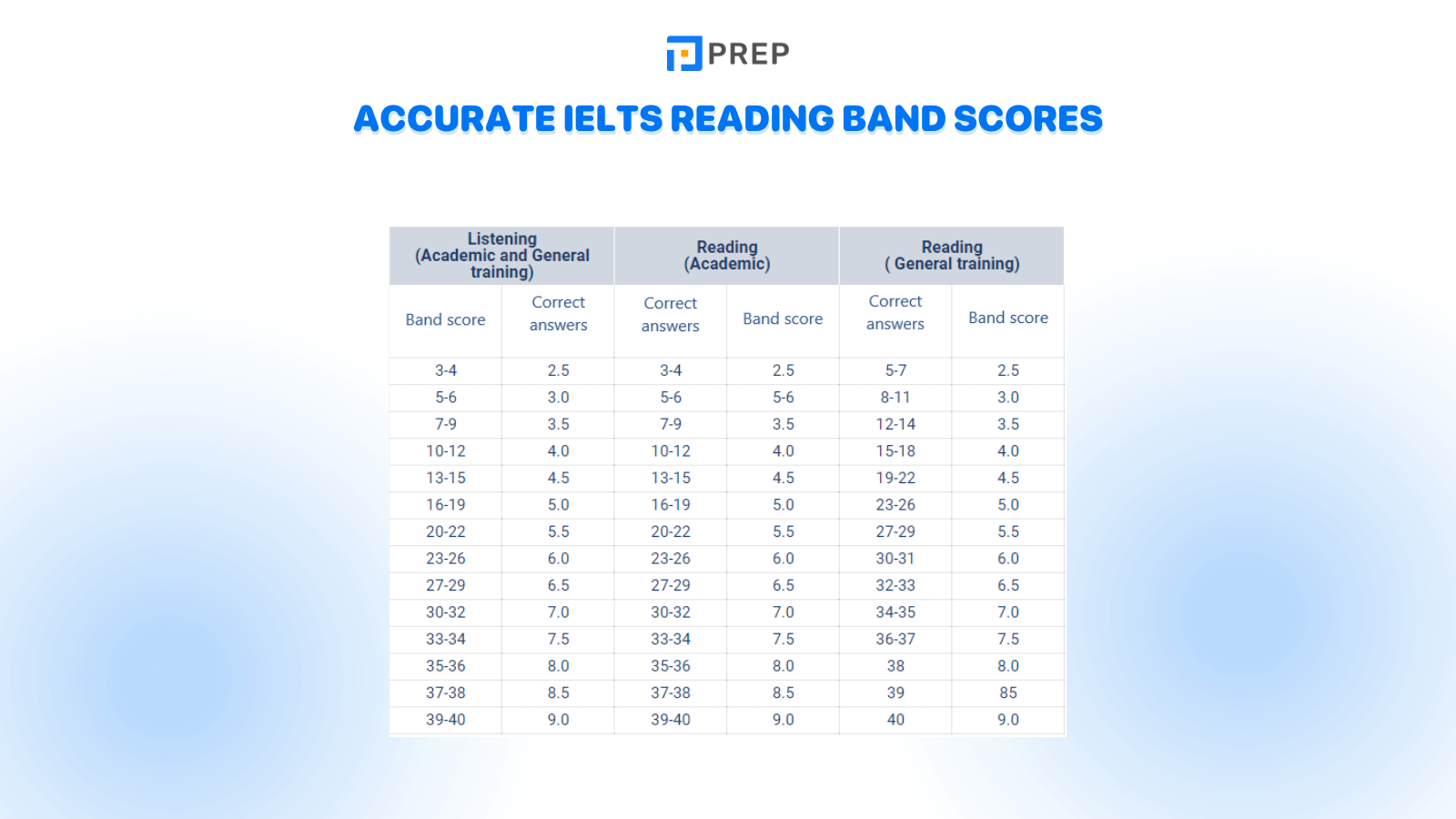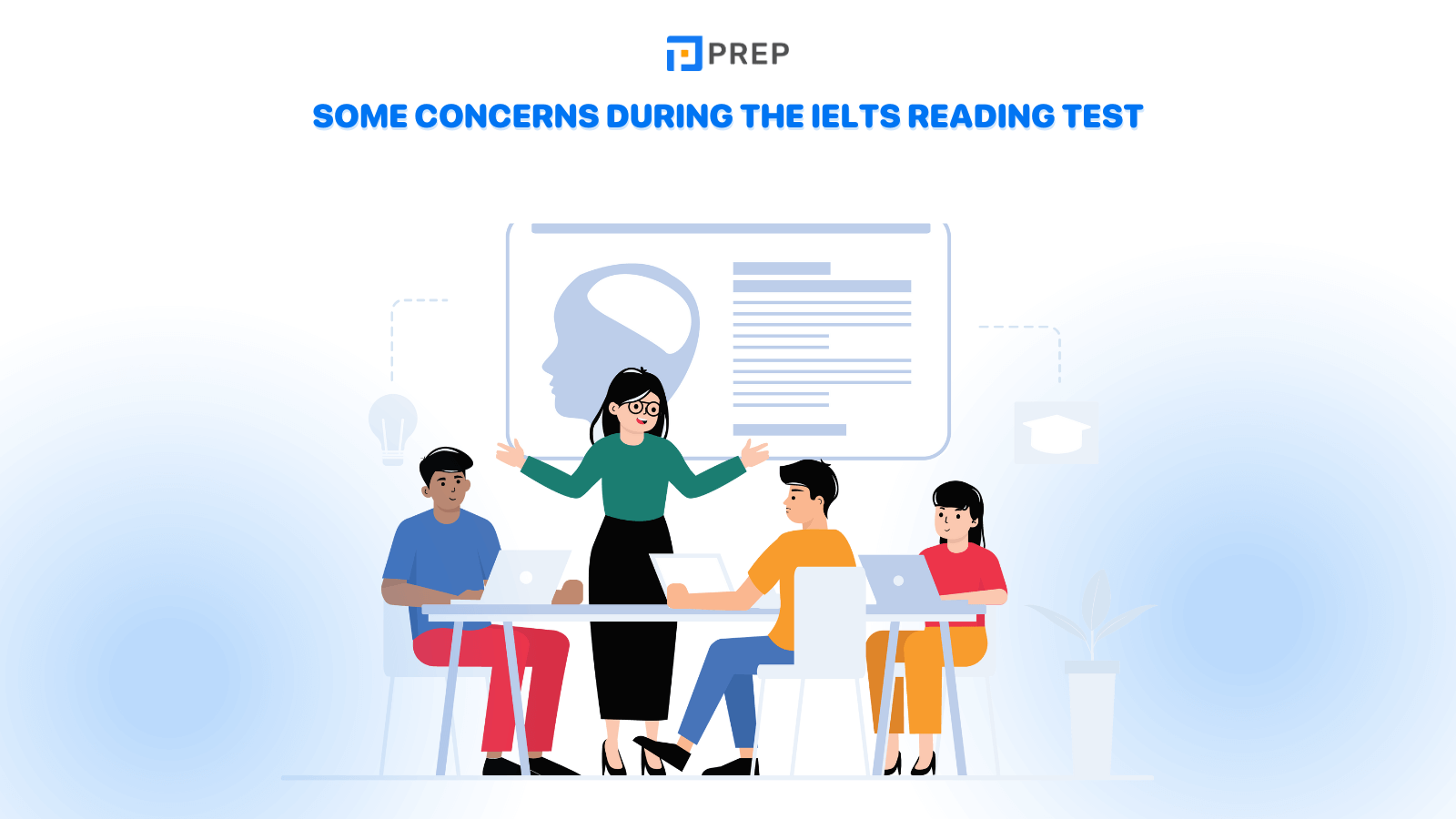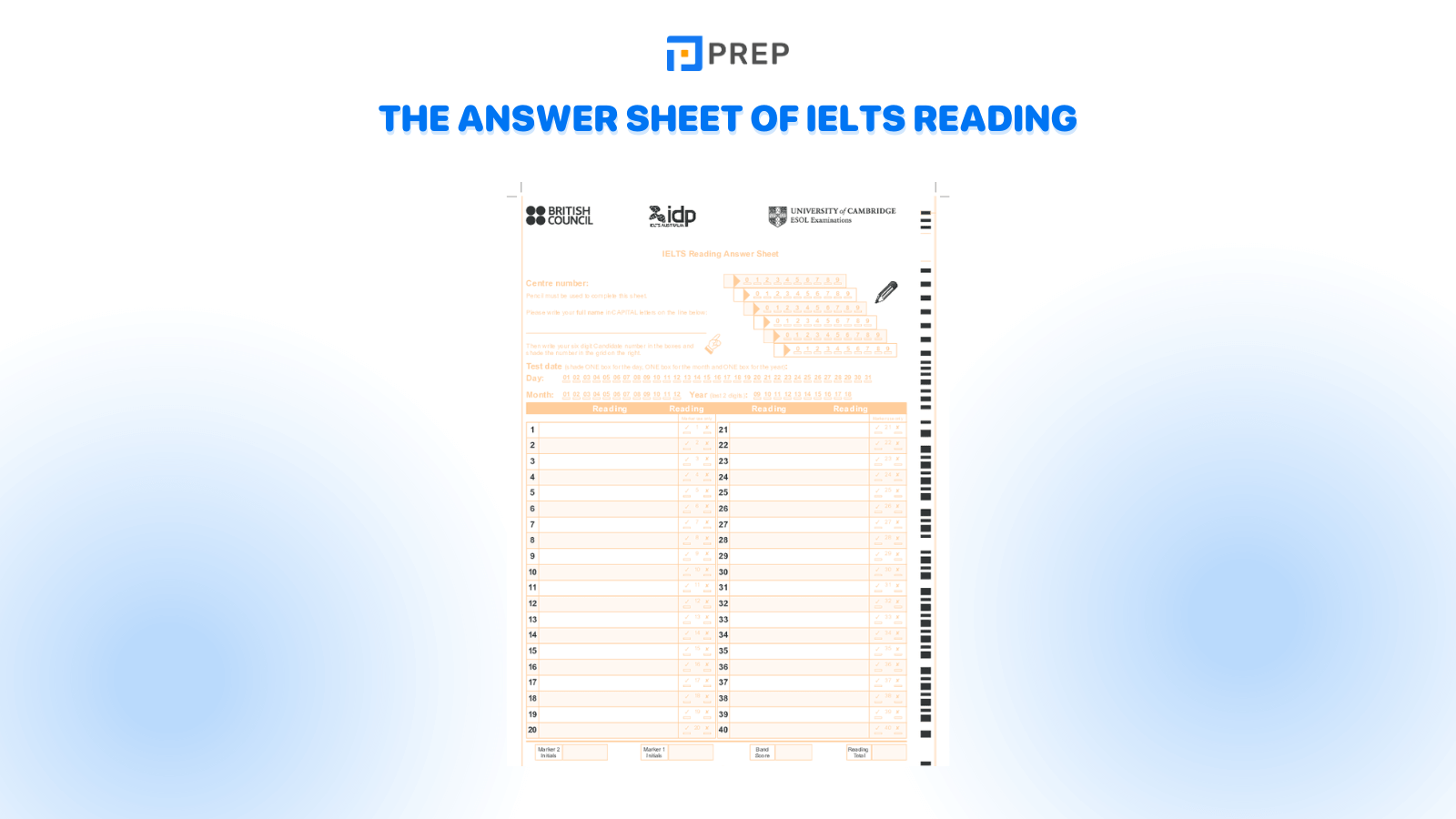Update on the latest IELTS Reading Band Scores in 2025
Reading is considered to be easier compared to the other three skills in IELTS exams. However, to improve your proficiency and achieve a high IELTS Reading band score, you still need to practice reading daily. In addition, you must have a solid understanding of the structure and score scale of the IELTS Reading test to effectively enhance your performance. Therefore, to help you Preppies gain a deeper understanding of the IELTS Reading band scores, PREP will provide the most detailed update on the IELTS Reading score scale in this article. Let's dive right into it!
- I. IELTS Reading Band Scores
- II. Some concerns during the IELTS Reading test
- 1. Will I lose points for incorrect answers?
- 2. Is it necessary to allocate time for each Reading section?
- 3. Can I write a draft on the test paper?
- 4. Is the time given for writing your answers on the answer sheet included in the reading section's overall time?
- 5. Will harder questions result in higher scores?
- 6. What if I don’t understand the topics in the IELTS Reading test?
- III. Boost Your IELTS Band Score with Confidence

I. IELTS Reading Band Scores
1. Accurate IELTS Reading Band Scores
Below is the accurate IELTS Reading score scale that has been compiled. The table includes the IELTS Reading score scale for both Academic and General Training. Follow the scoring method in the table below to determine your Reading IELTS Band Scores.

In the IELTS Reading test, candidates must complete a total of 40 questions. The examiners will then convert the number of correct answers into an IELTS Reading score scale ranging from 1 to 9. The scoring method for IELTS Academic and IELTS General exams is completely different.
When looking at the score table above, candidates will notice that the IELTS Reading Band Scores are completely different.
- In the Academic test, if you want to achieve IELTS Reading Band Scores of 5.0, you only need to answer 16-19 questions correctly in the test.
- On the other hand, in the IELTS General test, candidates need to answer 23-26 questions correctly in order to achieve IELTS Reading Band Scores of 5.0.
Therefore, not only do these two sections differ in terms of the exam content, but they also have different scoring methods for the IELTS Reading section.
2. Why is such a score distribution in the IELTS exam?
Why is the scoring range for IELTS Reading divided as mentioned above? Why is it that even though the scoring method for the IELTS Listening test is the same for both test formats, the scoring method for the Reading test is slightly different?
The reason for the difference in scoring methods for IELTS Reading in these two test sections is due to the different test questions and the varying difficulty levels that cannot be completely identical. Therefore, the scoring for IELTS Reading is based on the range of correct answers rather than the number of correct answers. This scoring method is considered fair and effective in generating equal scores for candidates taking the IELTS test.
II. Some concerns during the IELTS Reading test

1. Will I lose points for incorrect answers?
Many candidates worry that if they answer incorrectly, will their IELTS Reading band score be lowered? The answer is NO. Therefore, even if you don't know the exact answer, do not leave the answer blank. Try to make an educated guess and fill in the answer sheet to achieve a high IELTS score!
2. Is it necessary to allocate time for each Reading section?
You should develop the habit of allocating time during your online IELTS learning process. You should spend 20 minutes on each passage during the IELTS Reading test. Pay attention to the time and allocate it wisely to avoid situations where you have too little time or no time to complete all three sections.
3. Can I write a draft on the test paper?
You can write drafts or underline keywords in the reading section comfortably, as long as you provide complete answers on the Answer sheet to achieve the desired IELTS Reading band score.

4. Is the time given for writing your answers on the answer sheet included in the reading section's overall time?
In the IELTS Listening test, you get some extra time at the end to jot down your answers on the answer sheet. But with the IELTS Reading test, that's not the case. You need to fill in your answers on the answer sheet as you go through each section.
It’s wise not to leave filling out the answer sheet until the last minute. If you do and time runs out, you could miss out on scoring those last few points.
5. Will harder questions result in higher scores?
Candidates should never assume that harder questions will be awarded higher scores. The test consists of 40 questions, and each question carries an equal number of marks. So, make sure to complete all the questions.
6. What if I don’t understand the topics in the IELTS Reading test?
The topics in the IELTS Reading test are taken from books, magazines, or newspapers. Therefore, the topics will not be too difficult or excessively specialized to the extent that an IELTS candidate cannot comprehend them. Each candidate should allocate time wisely. Even during preparation, read topics that may appear in the test. Moreover, familiarize yourself with Western culture to have a better understanding of the topics discussed.
III. Boost Your IELTS Band Score with Confidence
In conclusion, understanding the scoring system and the scoring method for IELTS Reading is crucial and necessary for effective preparation. If you need a confidence boost, PREP’s real-time practice and expert feedback will help you achieve your target band score below:
- IELTS preparation course: Mastering IELTS exam from zero to hero

Hi I'm Chloe, and I am currently serving as an Product Content Administrator at Prep Education. With over five years of experience in independent online IELTS study and exam preparation, I am confident in my ability to support learners in achieving their highest possible scores.
Comment
Premium content
View allPersonalized roadmap
Most read












